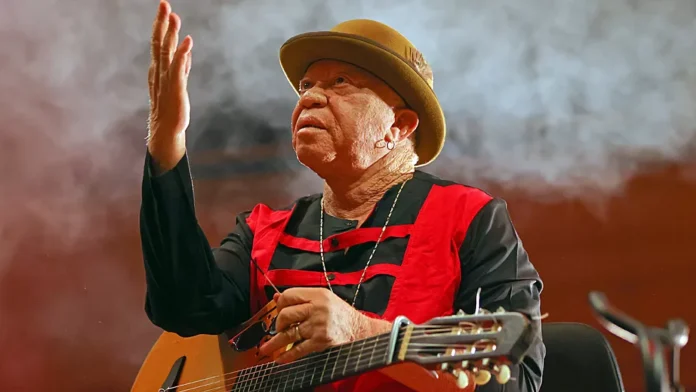
Shock. Bafflement. Scepticism. These were some of the reactions among a group of music fans when Mali’s much-beloved Salif Keïta – known as the Golden Voice of Africa – was appointed as a special adviser to coup leader Col Assimi Goïta.
The 73-year-old might be in semi-retirement and eclipsed nowadays by Afrobeats stars, but he was one of the pioneering giants of a generation that put African music on the global map.
After 50 successful years in the music industry, he remains influential, admired and well-known.
Keïta mixes traditional Mandé music with jazz, blues and Western music styles and was nominated several times for a Grammy for his infectious melodies and powerful voice.
He has albinism – and he has campaigned tirelessly against discrimination.
In 2005, the musician set up the Salif Keïta Global Foundation to raise awareness of the condition and speak out against a perception in some African countries that albinism is an ill omen.
People with albinism are often shunned and bullied – as Keïta was as a child – and in some countries, like Burundi and Tanzania, they are killed or body parts cut off and used in rituals.
Keïta’s dream as a child was to be a teacher – but he was denied the opportunity and told he “would scare the children”.
Keïta has raised funds from his concerts and donated proceeds of his record sales to his foundation to help with medical assistance of people with albinism – who are more prone to skin cancer and poor eyesight because of their genetic condition.
So why would Keïta take on such a role as special adviser on cultural affairs to a man who has led not one but two coups – the first in August 2020 and the second in May 2021?
Three years ago, there was significant popular support for Mali’s military junta when it seized power after mass protests against then-President Ibrahim Boubacar Keïta, who is no relation to the musician.
Source: Ghana/Kasapaonline.com/102.5FM



